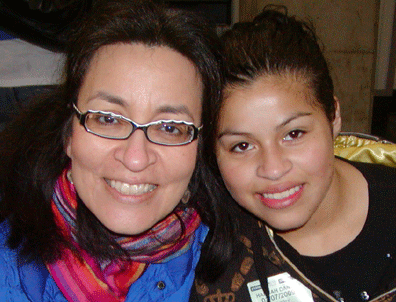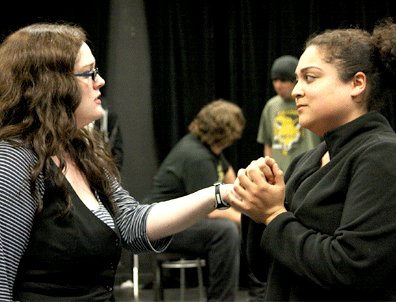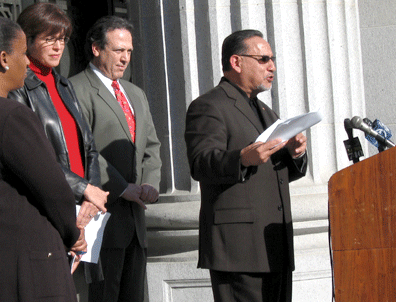
Children of incarcerated parents get needed role models --
You are twelve years old and your father is in prison. Your mother is also in prison or has a drug abuse problem or is just unable to take care of you. You feel ashamed, lost, hurt or confused. You also have a better than average chance of repeating your father or mother’s mistakes and getting involved with crime.
Working to break the cycle of crime and incarceration is OreMi, a non-profit organization that serves children of incarcerated parents by creating lasting mentoring relationships with community members. Based in Oakland, the organization works with children between the ages of four and eighteen in Alameda and Contra Costa County. Mentors help their mentees build on their strengths and realize their own potential, increasing self confidence and a child’s chances of success in life.
“The lack of a stable role model in their life has a big impact on kids and their future,” says Hannah Danto, program coordinator of the OreMi mentoring program. “A trusting relationship with a caring adult provides stability and often has a profound life-changing effect on both the mentee and the mentor,” she adds.
Maria, age 13, says, “My mentor helps me a lot because she helps me work on my character, and helps me bring my grades up. Sometimes I get in trouble at school but she is there for me and I can talk to her when I feel angry or sad about something.”
“Being a mentor isn’t always easy, but it has been really rewarding,” says Scott, a mentor. We’ve both grown from the mentoring relationship.”
Danto says that positive changes can be seen in the children in a short amount of time with their mentor, though often the beneficial impact won’t be seen until years later. “We’ve seen mentees improve their school grades significantly, and they also do things they’ve never done before, like going to San Francisco or to the zoo or other typical childhood things they have missed.”
There is enough demand for OreMi’s mentoring that there is currently a list of more than fifty children waiting to be matched with a mentor, who will spend at least one hour per week with their mentee. More volunteer mentors are needed, especially Hispanic males. Though about twenty-five percent of the kids OreMi helps are Hispanic, there are no Hispanic male mentors and only a few Hispanic female mentors.
While all children in the program have been impacted by incarceration, the needs of each child are different. Mentees need a positive, consistent, and reliable adult role model. They may also need help with homework, a chance to get out of the house, new opportunities and experiences, assistance in developing social skills, or just someone who can listen.
OreMi describes its program as a transformative mentoring program that focuses on seeing children as the people they are capable of becoming. Transformative mentoring is about helping a young person change her or his own negative attitudes, feelings and behaviors. As a mentor, this means avoiding stereotypical labels, recognizing that every young person has innate greatness and unlimited potential, and helping the youth develop his or her own potential. OreMi mentors are volunteers from the community, of any generation, ethnicity, or profession.
OreMi credits the success of its mentoring program to the dedicated volunteers who give time each week to help a child in need. According to research group Public/Private Ventures, children who receive mentoring services from OreMi:
are 46% less likely to begin using illegal drugs
are 27% less likely to begin using alcohol
are 36% more trusting of their parent or guardian
are 52% less likely to skip school earn higher grades and are more confident in their schoolwork
are 86% more likely to go to college
have 4 times fewer teen pregnancies
have 4 times fewer arrests
develop greater self-esteem and self-reliance
OreMi is currently looking for mentors for their waiting list of children. If you are interested in becoming a mentor or know a young person who would benefit from a mentor relationship, please contact Hannah Danto at 510-834-2443 extension 3009, or visit www.oremi.info.





